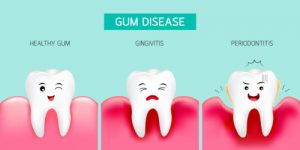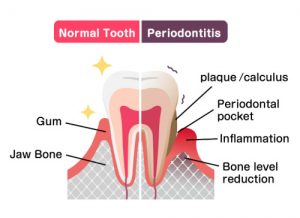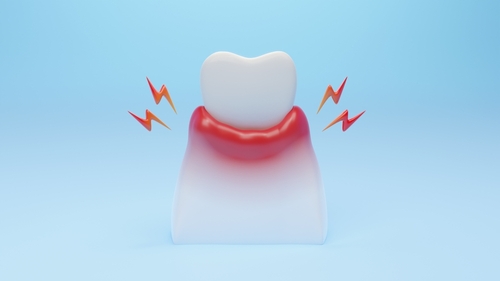WORDS DR LAU LAKE KOON
 FEATURED EXPERT FEATURED EXPERTDR LAU LAKE KOON Dentist Koks Dental Surgery |
Most people with diabetes or those that have someone close to them that have this disease will know that the disease can harm many organs in the body—such as the eyes, nerves, kidneys, heart, and more.
DO YOU KNOW THAT DIABETES CAN AFFECT THE TEETH AND GUMS AS WELL?
People with diabetes are more likely to have:
- Periodontal or gum disease
- Persistent bad breath
- Tooth decay or cavities
- Oral fungal infections
- Oral ulcers
- Loss of teeth
Diabetes can cause increased levels of glucose in the blood as well as saliva

The increase of glucose in the saliva encourages the growth of bacteria in the mouth and together with food particles can build soft sticky whitish layer called plaque.
Plaque is the yucky smelly stuff that you can scrape off from your teeth if you haven’t been cleaning them properly. It is the main cause of bad breath.
If left unchecked, the persistent plaque buildup can cause tooth decay and harden to form tartar.
Persistent plaque or tartar buildup causes irritation to the gums
The gums can become red and swollen, and bleeding may occur.
This is the first warning sign that it’s time to visit the dentist.

Otherwise, the infection will go deeper under the gums, causing infection of the bone structure supporting the teeth. This is periodontitis, the second stage of gum disease.
The gums will start to recede, trying to pull away from the tartar formed. Over time the teeth will become unstable, and one may experience pain as a result.
At the final stage of gum disease, the teeth will become so infected and painful that it may need to be removed
In poorly controlled diabetic cases, the gum disease may progress much faster. The severity of the condition may be worse, which is why it is important to visit the dentist early to resolve the issues.
Diabetes and certain drugs can reduce the production of saliva in our mouth
Our saliva contains minerals to protect our teeth from tooth decay, mucin to keep the teeth moist and slippery, antibacterial substances to eliminate potentially harmful bacteria, and it also has the ability to neutralize the acids produced by bacteria in our mouth.
Without the presence of saliva, there is a higher risk of tooth decay and gum disease.
Dry mouth can increase the risk of developing fungal infections called thrush, which are painful white patches in the mouth.
In denture wearers, the dryness can decrease the suction effect of the denture and increase abrasion against the gums, leading to ulcers and mouth sores.
Smoking will worsen the condition further.
In severe uncontrolled diabetic cases, some people can develop burning mouth syndrome—a continuous burning sensation in the mouth that will alter taste and sensation.
HOW THE DENTIST CAN HELP YOU
Gingivitis or periodontitis
The dentist will need to carry out deep cleaning of the teeth and gums, in order to decrease the bacterial load and to allow the gums to heal.
However, the dentist can only do so much—you have to also keep good oral hygiene and use of mouthwash daily.
Fungal infections
Your dentist may prescribe some medications to kill the fungus responsible for the infection.
If you use dentures, they will be checked to ensure that they are still fitting properly. You must keep them clean in a disinfection solution at night.
Dry mouth
For most non-severe cases, the simplest solution is to keep your body well hydrated at all times. Drinking water regularly also moistens the mouth.
Only in severe cases are saliva substitutes prescribed.
Burning mouth syndrome is usually more complicated and will require specialist attention.
HELPFUL TIPS
- A well controlled blood glucose level as well as a healthy diet and lifestyle are key to reducing and preventing oral health problems. Keeping your mouth healthy will also prevent diabetes-related health problems such as heart disease and kidney disease.
- Good oral hygiene will keep your gums and teeth healthy. Brushing twice a day every day, and use a floss or water floss daily.
- Visit your dentist regularly for a routine checkup. Please make sure you tell your dentist if you have diabetes. Keep your dentist updated about any changes to your health and blood sugar levels.
- For denture wearers, make sure your dentures fit properly, and clean them by soaking them in denture disinfectant at night.
- Quit smoking. Smoking will worsen gum condition and overall health.

